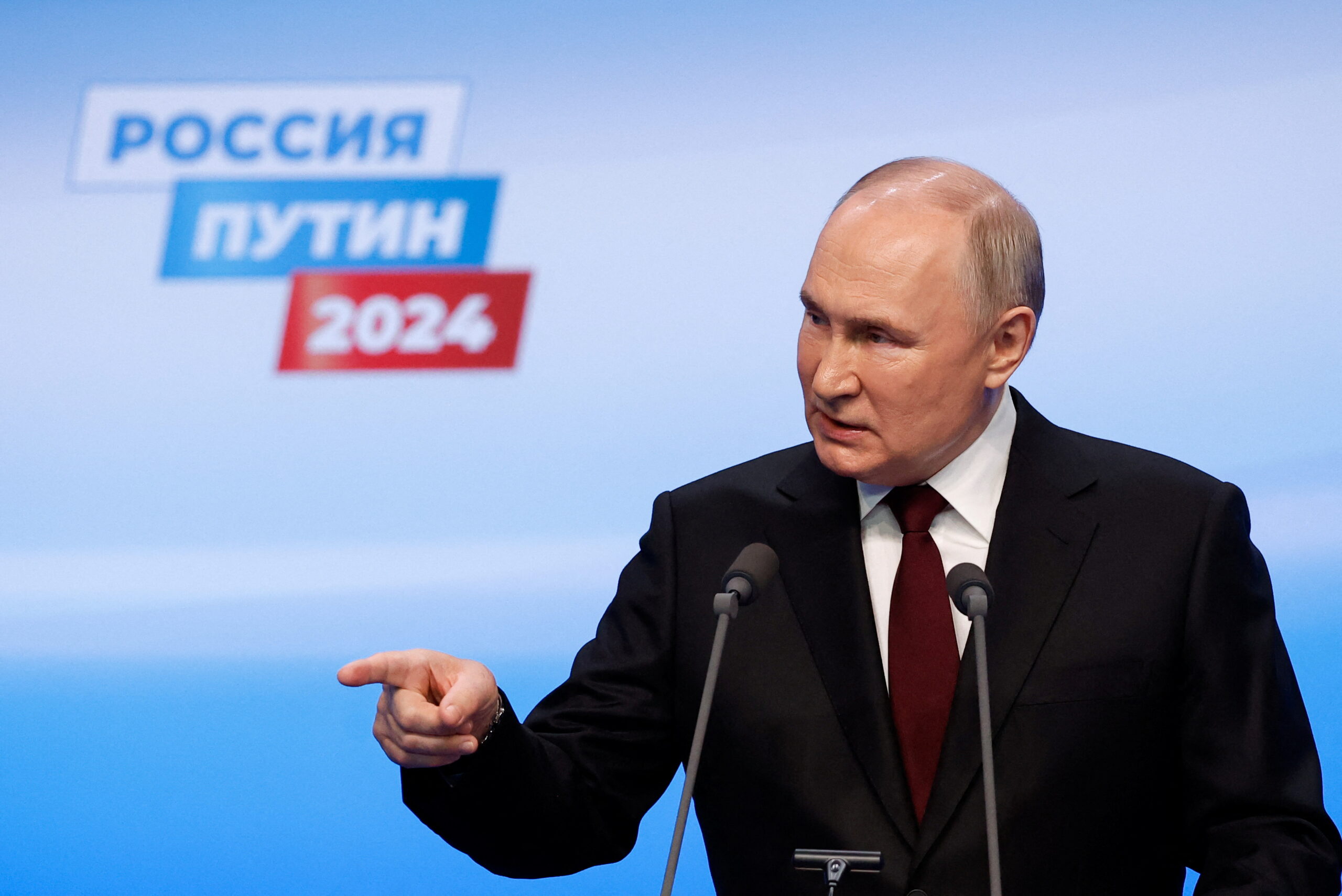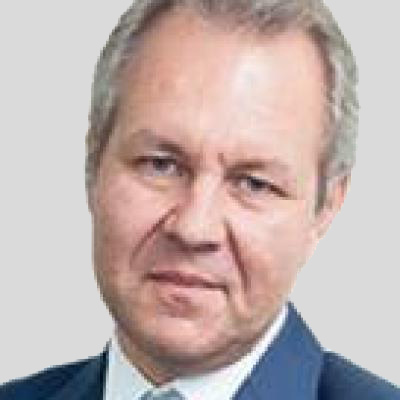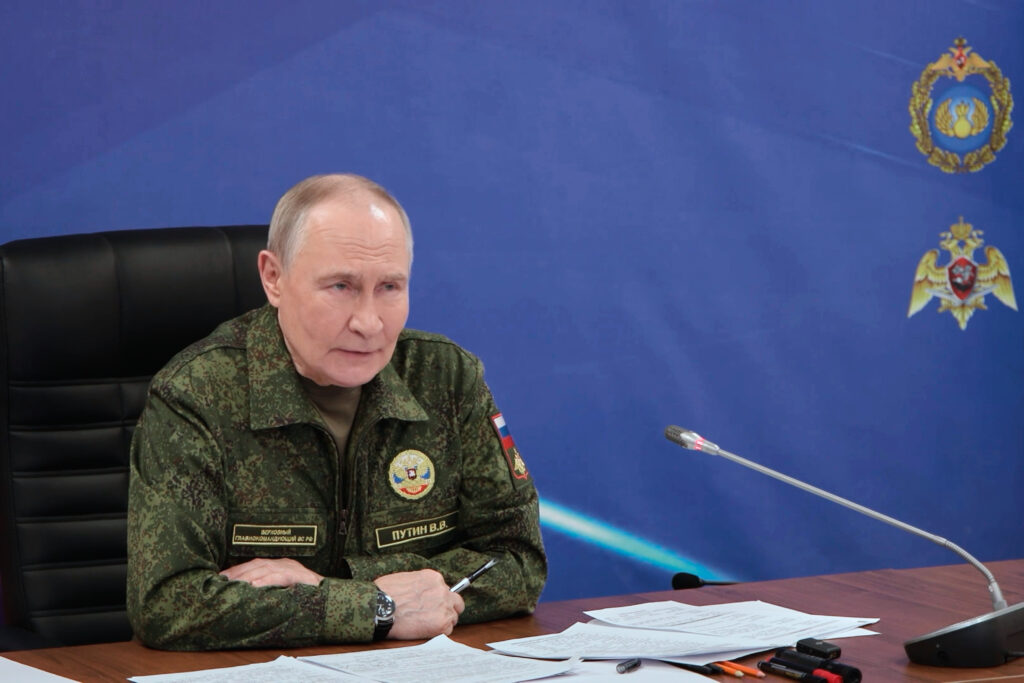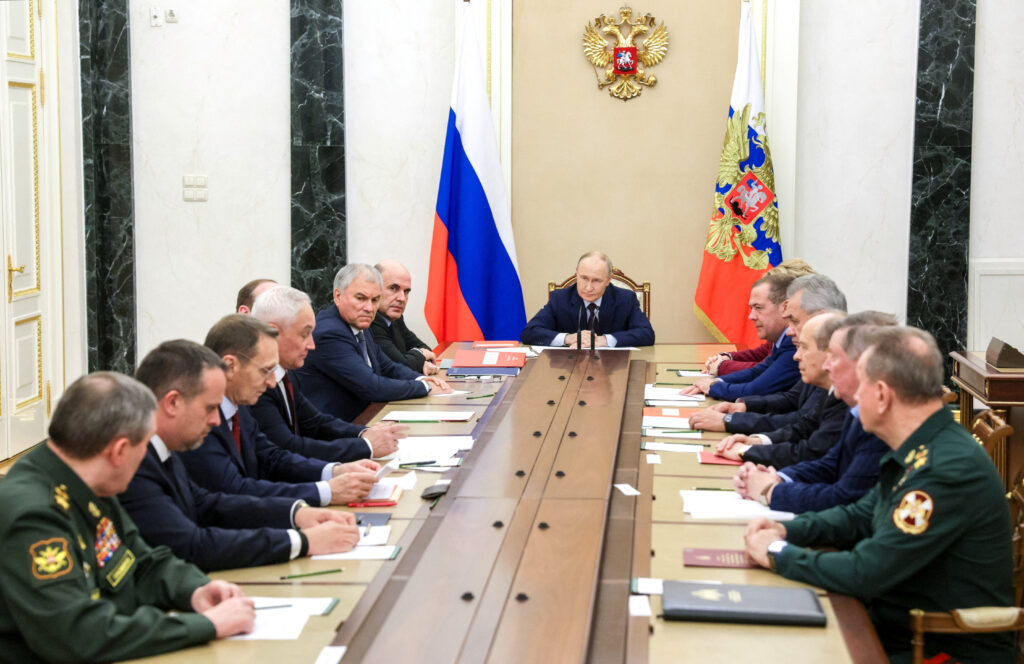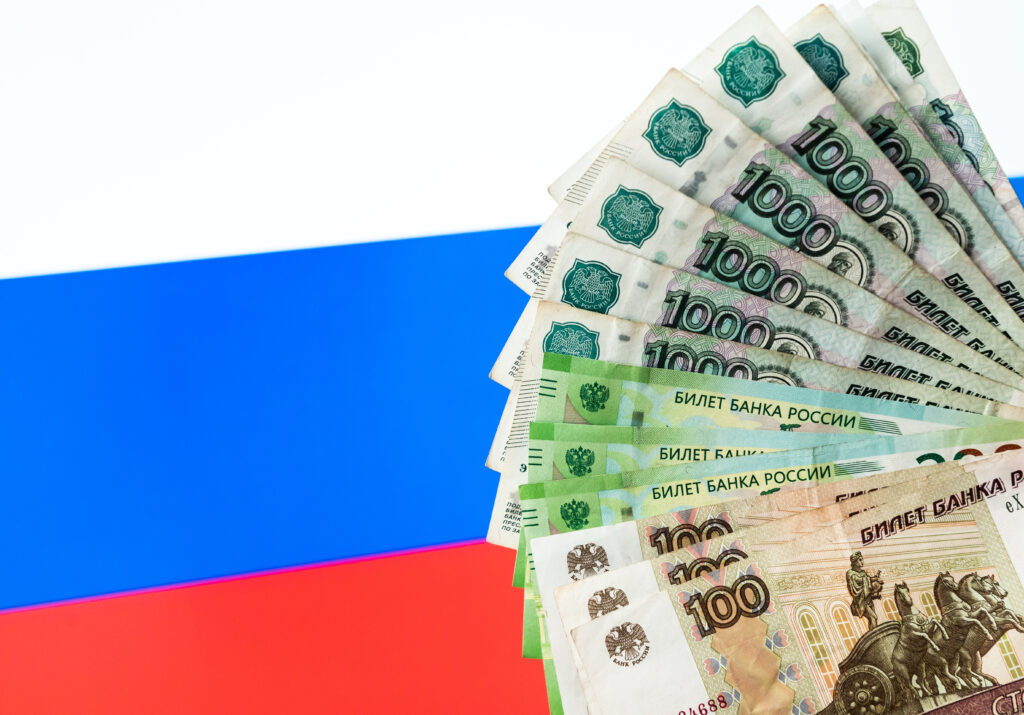Recently, Andrey Pertsev, in his traditional «Political News Week» on Riddle Russia, analyzed an article by Kremlin functionary Alexander Kharichev, who once again delved into musings about the «Russia Civilization.» Although it didn’t generate as much buzz as Vladislav Surkov’s interview with l’Express, its theses caught the attention of some opposition outlets. Most critics saw the text as juggling fictional entities, with references to Stalinism and 19th-century monarchist ideas. However, it also contains two central ideas, supplemented by a host of secondary ones.
The First Idea: Intemporality and Subjectlessness
Kharichev’s text, despite its epigraph from Putin, deviates from typical Kremlin narratives. It is saturated with the word «always» («Russia has always existed as a distinct civilization,» «the leading role in organizing society has always belonged to the state,» «we always seek truth as our foundation,» «Russia, throughout its history, has faced…,» «we always continue to seek truth,» etc.). On one hand, this imbues the narrative with a sense of inevitability and irrevocability; on the other, it devalues Putin’s beloved history by depicting the subject in near-perfect stasis. The text also appears subjectless—not only because no actors are needed to describe what has always been, but also because the author clearly prioritizes territory over its population. For example, it’s stated that «vast spaces literally ‘set’ the scale of thinking [whose?] and determined the specifics of the country’s development,» or «our land is a global storehouse of valuable resources, so its territories required exploration and protection.» Kharichev writes that «the essence of Russian civilization lies (…) in uniting millions of people on its territory.»
Thus, spaces and what they conceal are absolutized over people (although Putin himself more often speaks of peoples—or essentially a single people—than of territories). This underscores the «naturalness» of the Russian imperium: expansion is described not as colonization but solely in terms of «territorial exploration» or «the necessity of controlling vast spaces.» As a result, «Russian civilization» becomes a boundless abstraction, but this portrayal serves a purpose: the state’s task is to remain as unchanging as possible and to control territory and natural wealth. In this interpretation, people become entirely secondary.
The Second Idea: «Service»
Many critics noted Kharichev’s concept of «service,» which he interprets not as a duty but as an «inner readiness to fulfill obligations to family, society, and country.» This phrase seems meaningless, as it juxtaposes obligations against duties, but it’s worth noting that for the author, «the spirit of the law is more important than its letter.» Thus, the idea is that people must sacrifice everything for unwritten rules, which are dubbed the «Russian civilizational code.» «We, more readily than others,» the author writes, «give our lives for lofty goals because we are convinced that the true pursuit of a high ideal is achieved not through comfort but through sacrificial devotion.» This is an interesting concept, but its value (like that of many intellectual pursuits in modern Russia) is significantly diminished by its apparent plagiarism.
Exactly a century ago, a book was published containing strikingly similar lines: «This readiness for personal self-sacrifice, the willingness to give one’s labor, and if necessary, one’s life for others, is most developed in Aryans. Aryans are great not because of their spiritual qualities as such, but because of their readiness to dedicate these qualities to the service of society. The instinct of self-preservation has taken its most noble form in Aryans, for the Aryan subordinates their own ‘I’ to the life of society, and when the hour comes, willingly sacrifices themselves for the common good,» wrote Adolf Hitler in his manifesto Mein Kampf a hundred years earlier.
Against this backdrop, it’s hard to agree with those who believe Kharichev’s writings can be logically linked to the CPSU, Stalinism, or even Sergei Uvarov. The current Kremlin ideologues’ scribblings lack the universality of Soviet theories or the populist spirit of imperial Russian historians. This is a less-than-original reincarnation of fascism, which—following Ivan Ilyin, so beloved by Putin—they are now trying to make the country’s official ideology.
Ideology, à la Putin
Putin’s ideology, coinciding with the centennial of Mein Kampf, is a fascinating phenomenon. It formally acknowledges the multinational and diverse nature of the country but, first, claims that this country «originally emerged as multinational,» and second, is significant not for enabling people to live in a just society but for «creating conditions for the development and prosperity of the state.» The individual in this construct is clearly relegated to the background; their rights and needs are not considered significant or worthy of attention. Kharichev is so enamored with the heroics and metaphysics of fascism that he inadvertently coins a maxim: «We understand freedom as will,» echoing the slogans of Leni Riefenstahl’s propaganda film Triumph of the Will about the 1934 NSDAP congress. The idea of a «civilizational code» (or, in Patriarch Kirill’s phrasing, the «Russian genetic code») is likely also borrowed from the fascist ideological arsenal.
Methodologically, the imagined alternative to the «Russian ideal» is constructed in a strikingly similar way. In Hitler’s book, Aryans were contrasted with Jews; in Kharichev’s text, the dichotomy is with the liberal West. The essence of this antagonism is depicted in the same tones. «Transhumanist» and «posthumanist» ideologies, «multiculturalism,» and «value discord» are all forms of weapons the West allegedly uses to undermine Russia’s «value sovereignty» (though the text occasionally suggests doubts about whether the enemy’s efforts are even worth noticing, as the author explicitly states that «the values (…) that form the foundation of Russian civilization’s life (…) are stable and impervious to external influence»).
However, it’s time to address the most critical point, which reveals a major weakness in Putin’s ideology. Kharichev raises «the most important question: what should the new generation of citizens be like, capable not only of preserving the homeland’s unique heritage but also of giving it a developmental impulse?» In fascist ideology, the answer was simple and clear: a new human must be created—physiologically (through eugenics, artificial selection, and subsequent upbringing) and morally (through a complete transformation of consciousness, instilling new habits and morality). In this sense, fascism (like many 20th-century ideologies) was a concept of change, requiring a particular renunciation of the old world and the creation of a new one. Its ideologues understood that the traits they attributed to the ideal human were largely absent in people at the time. Little has changed in society over the past century in this regard. But Putin’s ideology is simpler: it doesn’t change the human but convinces them they already embody the ideal. This is why «traditional values» seem the most convenient ideological choice: they don’t need to be formulated or created—they simply exist and always have. Moreover, if you closely read the list of «seven qualities» of the future human that Kharichev concludes his monumental text with, it’s hard to shake the impression that the reader is being offered a blatant ersatz. Patriotism is framed as «a desire to participate in the country’s affairs»; the theme of service is reduced to «the ability to rise above individual benefits»; there’s talk of «commitment» to certain principles and a «striving for creation.» The author likely doesn’t even realize that he’s attempting to define the «human of the future» not through their actions, abilities, or traits, but solely through their self-perception and hypothetical predispositions. A striving for creation doesn’t even imply the possibility of it, let alone its effectiveness; a desire to participate in something says nothing about the ability to do so; commitment to principles doesn’t equate to their daily realization. Putin’s «ideology» becomes an apologia for passivity and non-development—and we see the results of this clearly after a quarter-century of its chief proponent’s rule: the country has practically stalled in its development, if not regressed.
The fascist roots of Putin’s regime seemed obvious over a decade ago, and recently, the author of this article attempted to explain why they went unnoticed by Western researchers and politicians for so long. The reason lies in the gradualism of Putin’s politics: modern Russian fascism is neither based on a spontaneous mass movement nor on a pre-formulated doctrine—it was built «from above» and «from whatever was available.» In fact, Kharichev’s article is significant precisely because it inventories—years after the regime’s foundations were laid—the ideological scraps that serve as its conceptual props. There’s nothing new or original in it, nor does it provide potential for the regime’s development. And while Putin’s system has already outlived the Third Reich by twice as long, this likely only underscores a known biological fact: simpler organisms (or, in our case, regimes) often prove more resilient than those with greater internal complexity.
